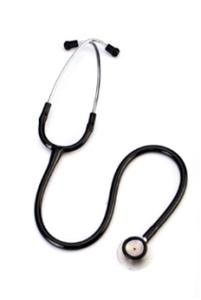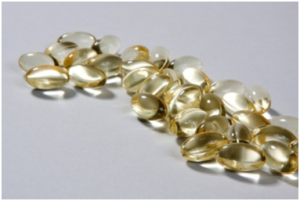Author: Dr. Stephen Chaney
 Modern medicine has helped mankind greatly extend our lifespan, but what about our “healthspan”? Aging is often associated with major degenerative diseases and loss of physical and mental functioning. As the saying goes: “Aging isn’t for sissies”. But, what if you could live healthy into your 80s and 90s? What if you had the health to truly enjoy the wisdom that comes with your years of experience? In this article we will explore antioxidants and aging.
Modern medicine has helped mankind greatly extend our lifespan, but what about our “healthspan”? Aging is often associated with major degenerative diseases and loss of physical and mental functioning. As the saying goes: “Aging isn’t for sissies”. But, what if you could live healthy into your 80s and 90s? What if you had the health to truly enjoy the wisdom that comes with your years of experience? In this article we will explore antioxidants and aging.
While healthy aging is a very personal issue for all of us in our golden years, it is a very important societal issue as well. The United Nations estimates that by 2050 more than 1/3 of the population of developed countries will be over 60. Unless we can find a way to preserve the health of these older adults, health care costs will bankrupt even the richest of countries.
That’s why the recently published study on the effect of antioxidant supplements on healthy aging in French adults (Assmann et al, American Journal of Epidemiology, 182: 694-704, 2015) is so interesting.
How Was The Study Designed?
 This study was a follow-up to the “Supplementation With Antioxidant Vitamins and Minerals” study that was conducted in France during 1994-2002. That was a double blind, placebo controlled study in which participants were given either a placebo or a supplement containing 120 mg of vitamin C, 6 mg of beta-carotene, 30 mg of vitamin E, 100 ug of selenium, and 20 mg of zinc every day for an eight-year period. These nutrient levels were designed to be equivalent to the quantities provided by a balanced diet rich in fruits and vegetables.
This study was a follow-up to the “Supplementation With Antioxidant Vitamins and Minerals” study that was conducted in France during 1994-2002. That was a double blind, placebo controlled study in which participants were given either a placebo or a supplement containing 120 mg of vitamin C, 6 mg of beta-carotene, 30 mg of vitamin E, 100 ug of selenium, and 20 mg of zinc every day for an eight-year period. These nutrient levels were designed to be equivalent to the quantities provided by a balanced diet rich in fruits and vegetables.
The follow-up study was conducted approximately 5 years later with 3,996 of the original participants. The investigators specifically selected participants who were disease free when they entered the original study. These study participants were equally divided between men and women and had an average age of 65.3 years.
The participants were put through a battery of screens and assigned a “healthy aging score” based on:
- Absence of cancer, heart disease and diabetes
- Good physical and cognitive function
- No limitations in activities associated with daily living
- No depressive symptoms
- No health-related limitations in social life
- Good overall perceived health
- No function-limiting pain
In short those participants with a high healthy aging score had good health and good quality of life.
Are Antioxidants the Secret to Healthy Aging?
 When the investigators looked at the group as a whole, the results were pretty discouraging:
When the investigators looked at the group as a whole, the results were pretty discouraging:
- Antioxidant supplementation provided no significant benefit to the population as a whole.
- Antioxidant supplementation also provided no significant benefit to the women in the group.
However, when they looked at subgroups, the results were much more encouraging:
- Antioxidant supplementation increased the probability of healthy aging by 18% for the men in the study.
- For those participants with low serum vitamin C levels at the beginning of the study antioxidant supplementation increased the probability of healthy aging by 28%
- For those participants with low serum zinc levels at the beginning of the study antioxidant supplementation increased the probability of healthy aging by 26%
- For those participants consuming very few fruits and vegetables at the beginning of the study, antioxidant supplementation increased the probability of healthy aging by 17%
The conflicting results for men and women were puzzling, but the investigators pointed out that very few women had low serum vitamin C status at the beginning of the study, while 25% of the men had low serum vitamin C levels at the beginning of the study. The investigators speculated that supplementation may have been less effective in women simply because they had better diets than the men in the study. That certainly wouldn’t surprise me.
What Are The Strengths And Weaknesses Of This Study?
Let’s start with the strengths. This is the very first double-blind, placebo-controlled study to look at the role of antioxidant nutrients in healthy aging. A number of previous studies looking at the effect of antioxidant nutrients on individual components of aging have given conflicting results. The investigators pointed out that this study may have shown more beneficial effects of antioxidants than previous studies because:
- Most previous studies have been relatively short in duration. This was an 8-year study with a 5-year follow-up period (total study length = 13 years).
- Most previous studies did not measure baseline intake of the nutrients. This study shows that individuals with low baseline intake or low serum levels at the beginning of the study are significantly more likely to benefit from supplementation.
- Most previous studies have measured the effects of single antioxidant nutrients, or at most combinations of 2 or 3 antioxidant nutrients. This study used a combination of 5 different antioxidant nutrients. The synergy between these nutrients may have increased the magnitude of the observed benefits.
The weaknesses of the study are also pretty apparent.
- Since it is the first study of its kind, it does need to be validated by additional studies.
- There is no universally accepted index for healthy aging (This is a problem for aging research as a whole, not just this study).
- The participants in the study were not evaluated for healthy aging criteria at the beginning of the study so we have no idea how their healthy aging score changed over time.
- The beneficial effect of antioxidant nutrients, while significant, were relatively small. You are obviously not going to live healthy to 100 by consuming antioxidant supplements alone.
Antioxidants and Aging: Will Antioxidant Nutrients Help You?
 This study does suggest that antioxidant supplements may help you achieve healthy aging. This study also makes three other very important points:
This study does suggest that antioxidant supplements may help you achieve healthy aging. This study also makes three other very important points:
- A holistic approach to supplementation – one involving multiple antioxidant nutrients – is much more likely to be beneficial than individual antioxidant supplements.
- Supplementation is most likely to be beneficial for those individuals who are consuming a poor diet.
- Supplementation is also most likely to be beneficial for those individuals who have low serum level of essential nutrients. This can be due to poor diet, but low serum levels of individual nutrients can also be caused by individual differences in metabolism or genetic make-up.
However, as noted above:
- The study has some weaknesses and needs to be repeated.
- The beneficial effects of antioxidant nutrients were relatively small.
That means that holistic approaches to healthy aging are more likely to be beneficial than individual supplements. Based on what we currently know a holistic approach to healthy aging includes:
- Consuming a combination of a balanced diet and supplementation that provides sufficient levels of all the essential nutrients, not just the antioxidant nutrients. This would include things like omega-3 fatty acids and polyphenols.
- Avoiding saturated and trans fats, excess sugar, red and processed meats, which may have bad effects on your health.
- Controlling your weight.
- Staying mentally and physically active.
- Maintaining strong social networks.
- Maintaining a positive outlook on life.
The Bottom Line
- A recent study suggests that antioxidant supplements may help you achieve healthy aging. This study also makes two other very important points:
- A holistic approach to supplementation – one involving multiple antioxidant nutrients – is much more likely to be beneficial than individual antioxidant supplements.
- Supplementation is most likely to be beneficial for those individuals who are consuming a poor diet and/or have low serum levels of essential nutrients.
- Since the beneficial effect of antioxidant nutrients on healthy aging was relatively small, this suggests the antioxidant nutrients are just one part of a holistic approach to healthy aging that includes.
- Consuming a combination of a balanced diet and supplementation that provides sufficient levels of all the essential nutrients, not just the antioxidant nutrients. This would include things like omega-3 fatty acids and polyphenols.
- Avoiding saturated and trans fats, excess sugar, red and processed meats, which may have bad effects on your health.
- Controlling your weight.
- Staying mentally and physically active.
- Maintaining strong social networks.
- Maintaining a positive outlook on life.
These statements have not been evaluated by the Food and Drug Administration. This information is not intended to diagnose, treat, cure or prevent any disease.
